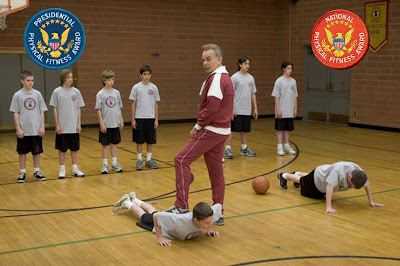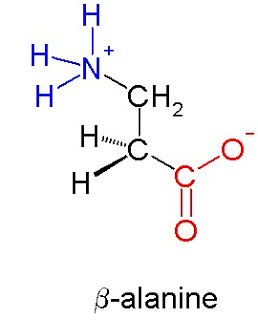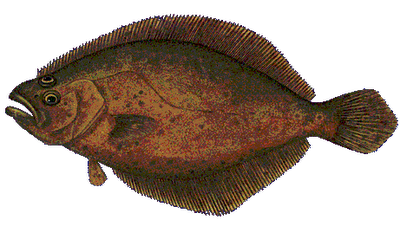To anyone that says, "A randomized controlled trial in nutrition is impossible!" I can now say, "You just don’t want it badly enough."
 Should you go on the Mediterranean diet?
Should you go on the Mediterranean diet?As you are already probably aware, the Mediterranean diet is one of the diets that started it all. Its rules are relatively simple: lots of olive oil, lots of fruits and nuts, lots of vegetables and cereals, and some fish and chicken, and not a lot of dairy, red meat, processed meats, and sweets and some wine (And while Greece is part of Mediterranean, Greek yoghurt does not seem to feature prominently in this diet–so think on that a bit…)
The Mediterranean diet has been studied a lot. One could argue that of all the diets that have gone though fad phases, including the Atkin’s diet, the Mediterranean diet has been studied the most. In particular, its effects on preventing cardiovascular events (stroke, heart attacks and death from either) has been of particular interest. There have been major cohort studies, but never a randomized controlled trial. Read More...
Just because it’s brown, doesn’t mean it’s chocolate

This blog entry comes courtesy of John Woodslave who posted the link on my Facebook page.
Martin Bland’s “How to Upset the Statistical Referee” should be mandatory reading for all researchers. It’s short, gets to the point and, if everyone paid ACTUAL attention to it, would kill this blog. Read More...
This study makes no claims. But I bet other people will.

In the fitness industry, everyone’s trying to get or stay ahead. And while there are lots of ways to do that, tapping into published research is one of the more common ways to “reveal” something new and come across as being more leading edge than the next guy/girl.
I would argue that most people who post links to PubMed haven’t read the actual study, but are just browsing abstracts. I’ve written about what abstracts are good for in the past. But it’s been a while since I’ve really taken the theme up. Read More...
Bias doesn’t always work against you (or why gym class might not be all it’s cracked up to be)

This blog entry’s study comes from my friend Brad Pilon, who said, and-I-quote, “I wanna get you back to dissecting papers on your blog,” which jolted me into realizing I haven’t in a long time.
One idea that Brad and I have been talking about (apart from trying to stick to manipulating factors that make LARGE contributions to progress) has been the notion that diet and exercise, though both important for “health” and “fitness”, may have little contributions towards their counterpart body components. Diet seems to have the greatest impact on body fat, while exercise (and more specifically, resistance exercise) seems to have a greater impact on lean body mass. While one CAN use exercise to assist in losing body fat, I think there is probably some truth in the saying, “You can’t out-train a bad diet,” and similarly, I would argue that at most levels, you probably can’t eat yourself more muscles, otherwise, there would an epidemic of Ah-nolds in America, not obese people. Read More...
Screwed if you do, screwed if you don’t: People don’t want to read what they don’t want to hear

This WOULD be a catastrophe. This week, I was asked to write a commentary for Fitocracy on what has now become known as the “Red Meat Will Kill You” Study. The fallout in the blogosphere has been pretty dramatic (and by dramatic, I mean drama-filled and theatrical). There have been a few well-written, thoughtful commentaries, but by far, the bulk of criticism has been the general “correlation, not causation” crowd. While I think this is, by and large, a HYUGE step forward in general research literacy, it also makes me wonder if it’s just another sign of polarized, blinded thinking.
There is a fundamental difficulty with measuring long-term outcomes that are distantly removed from single-point events, and continuous repeated exposures. The three mainstream ways to get at the question of, “Does X make you live longer/shorter?” are: Read More...
Beta-alanine: The meta-analysis – 18 trials, still a marginal effect
 I’ve always thought a meta-analysis on beta-alanine was a good idea. So many of the trials have been underpowered, that it felt like weren’t getting anywhere fast. I wanted to be the one to do it, but life circumstances have kept me from focusing on much other than my main career. So it was a pleasant surprise to see that someone else had the same idea.
I’ve always thought a meta-analysis on beta-alanine was a good idea. So many of the trials have been underpowered, that it felt like weren’t getting anywhere fast. I wanted to be the one to do it, but life circumstances have kept me from focusing on much other than my main career. So it was a pleasant surprise to see that someone else had the same idea.
With just 11 weeks left before my exams though, I’m going to keep this blog entry brief. Read More...
What price would you pay for muscles?

Not everyone works out for performance. I would count myself amongst the folks who work out basically for looks. There was a time when I lifted to get better at my sport, but the reality is that my career and most of my current hobbies don’t require me to perform at a much higher skill level than sewing two hollow tubes about 1mm in diameter together, which clearly doesn’t require heavy squats to improve.
This entry’s article came to my attention from Ryan Zielonka, who wrote, Read More...
Fitness, nutrition and a Peruvian fruit stall
 I’m in Peru right now on a volunteer hand surgery assignment. I arrived here about a week ago and when I went to the grocery store the day after I landed to stock up on some supplies, I noticed things in the store that were familiar and things that weren’t so familiar.
I’m in Peru right now on a volunteer hand surgery assignment. I arrived here about a week ago and when I went to the grocery store the day after I landed to stock up on some supplies, I noticed things in the store that were familiar and things that weren’t so familiar.
In an effort to ensure I wasn’t going to get scurvy, I felt like I had to buy some fruit. There were oranges and pineapples and mangos and papayas, but I also wanted something portable that I wouldn’t have to peel or cut or scoop. So I opted for apples. I speak very little Spanish, so asking the clerks in the store about each fruit, its taste, how to eat or prepare it wasn’t really an option. Read More...
Aerobic exercise vs weights. Who will win?

There is no question that diet and exercise both play a role in fat/weight loss. Schools of thought range from the “it matters more what you eat” camp to the “it matters more how much you move with subgroups ranging from the “it matters how many calories you eat” camp to the “it matters if you do weights” camp and then the all-popular, “just move more” vs. “move, but move really really fast in short intervals of time” camps.
Jen Sinkler of Experience Life magazine brought this study to my attention, because I belong to the, “it matters if you do weights and probably doesn’t matter much if you move more, whether at a steady pace or really really fast in burst intervals.” camp ((mostly out of laziness and abhorrence of “cardio”) Read More...
Flukes–more than fish.
 In January this year, I was in Cancun at a conference (I know, life is harsh). We were traveling from the hotel to the conference and my friend David gave me half a peso back in change because I had lent him too much for bus fare. I said flippantly that he could keep the “half-cent”. He pointed out to me that half a peso was more than half a cent, and was, in fact, 5 cents, or a nickel. I said it was barely more, and he rebutted that it was TEN times more. It was then that I realized this was a very good illustrative example of how a statistically meaningful difference still doesn’t translate into buying a pack of gum.
In January this year, I was in Cancun at a conference (I know, life is harsh). We were traveling from the hotel to the conference and my friend David gave me half a peso back in change because I had lent him too much for bus fare. I said flippantly that he could keep the “half-cent”. He pointed out to me that half a peso was more than half a cent, and was, in fact, 5 cents, or a nickel. I said it was barely more, and he rebutted that it was TEN times more. It was then that I realized this was a very good illustrative example of how a statistically meaningful difference still doesn’t translate into buying a pack of gum.
Most of the studies I review for this site fall into two categories: Read More...
